Gustavo Kuerten
Gustavo Kuerten
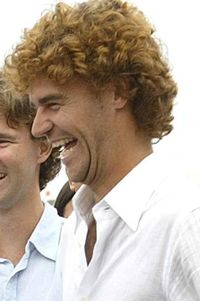 |
| Country |
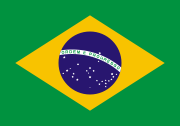 Brazil Brazil |
| Residence |
Florianópolis, Brazil |
| Date of birth |
September 10, 1976 (1976-09-10) (age 34) |
| Place of birth |
Florianópolis, Brazil |
| Height |
190 cm |
| Weight |
83 kg |
| Turned pro |
1995 |
| Retired |
May 25, 2008 |
| Plays |
Right-handed (one-handed backhand) |
| Career prize money |
$14,807,000 |
| Singles |
| Career record |
358–195 (ATP Tour level, Grand Slam level, and Davis Cup) |
| Career titles |
20 |
| Highest ranking |
No. 1 (December 4, 2000) |
| Grand Slam results |
| Australian Open |
3R (2004) |
| French Open |
W (1997, 2000, 2001) |
| Wimbledon |
QF (1999) |
| US Open |
QF (1999, 2001) |
| Other tournaments |
| Tour Finals |
W (2000) |
| Olympic Games |
QF (2000) |
| Doubles |
| Career record |
108–95 (ATP Tour level, Grand Slam level, and Davis Cup) |
| Career titles |
8 |
| Highest ranking |
No. 38 (October 13, 1997) |
| Grand Slam Doubles results |
| Australian Open |
QF (1999) |
| French Open |
QF (1998) |
| Wimbledon |
1R (1999, 2000) |
| US Open |
1R (1997, 2003, 2004, 2007) |
Gustavo Kuerten (Portuguese pronunciation: [ɡusˈtavu ˈkiɾtẽ]; born September 10, 1976 in Florianópolis, Santa Catarina) is a retired former World No. 1 tennis player from Brazil. He won the French Open three times between 1997 and 2001, and was the Tennis Masters Cup champion in 2000. After 12 years on the international tour, he retired from top-level tennis in May 2008.
Kuerten is also known as "Guga" (pronounced [ˈɡuɡɐ]), an affectionate nickname which is a common abbreviation of the name "Gustavo" in Portuguese-speaking countries. He is a polyglot who speaks fluent Portuguese, Spanish, English and French.
Early life
Kuerten was born in Florianópolis in southern Brazil. He began playing tennis when he was six, an early start to a life and career marked by family tragedy. His father, a former amateur tennis player, died of a heart attack in 1985 while umpiring a junior tennis match in Curitiba, when Kuerten was only eight years old. His older brother, Raphael, is currently his business manager. His youngest brother suffered prolonged oxygen deprivation and consequently irreparable brain damage during birth, and as a result suffered from mental retardation and severe physical disability until his death in 2007.[1] Kuerten was deeply affected by his brother's daily struggles, later donating the entire prize money from one tournament he has won every year of his professional career so far to a hometown NGO that provides assistance for people suffering from similar disabilities. He gave every trophy he won to his younger brother as a souvenir, including the three miniature replicas of the French Open men's singles trophy.
As a young player, Kuerten was heavily influenced by Oscar Wegner, then teaching in Florianópolis. Carlos Alves was his first coach and coached him for eight years. When he was 14 years old, Kuerten met Larri Passos who would be his coach for the following 15 years. Passos convinced Kuerten and his family that the youth was talented enough to make a living out of playing tennis. The two started traveling all over the world to participate in junior tournaments. Kuerten turned professional in 1995.
Professional career
As a junior player in South America, Guga always stood out winning many of the most important tournaments in the region. Curiously, many times he played in an age group above his. For example, when he was 16 instead of playing in the category 15-16 he many times played in the category 17-18.
After two years as a professional, Kuerten rose to the position of no. 2 player in Brazil, second only to Fernando Meligeni, and had his then highest point by helping the Brazil Davis Cup team defeat Austria in 1996 and reach the competition's first division, the World Group.
Following his unexpected victory in the 1997 French Open, Kuerten had a difficult year and a half, adjusting to his sudden fame and the pressure of being expected to win. 1998 was the worst year in his career that was not related to injuries (in that year, Kuerten played beneath his potential, despite not being hindered by physical problems). The pressure for him to become an "ambassador" for tennis in Brazil was made evident after his early defeat to a then unknown Marat Safin in the 1998 French Open: the entire body of Brazilian journalists that had been dispatched to Paris to cover the event immediately returned home, leaving the rest of the tournament unaccounted for in Brazil.
Like many South Americans his favorite court surface is clay. He has won three Grand Slam titles, all of them at the French Open, played on the clay courts of Roland Garros. He won these titles in 1997, 2000 and 2001. In every one of the three French Open victories he defeated Russia's Yevgeny Kafelnikov in the quarterfinal match and defeated exactly two Top 10 players on his way to the title. Kuerten became the No. 1 player in the world in 2000 using his unique serve and strong ground strokes.
Kuerten won at least one title a year between 1997 and 2004. The streak came to an end in 2005, when injuries and below-average performances kept him from winning tournaments. He was also a regular participant for Brazil in Davis Cup.
Kuerten embraces the baseline style of play, with heavily topspin ground strokes and a solid serve that enables him to wear down his opponent from the back of the court. His unique "grunt" when he strikes the ball is recognised by millions of fans around the world. He plays right-handed with a single-handed backhand using a western grip.
1997
At the 1997 French Open, he became the first Brazilian to win a Grand Slam singles title since Maria Ester Bueno last single title at 1966 U.S. Open. Victories over three former champions: Thomas Muster (3rd round), Yevgeny Kafelnikov (quarterfinals) and Sergi Bruguera (final) made him the third-lowest ranked Grand Slam Champion (ranked 66th) and this led to him entering the ATP top 20. Only Mark Edmondson (ranked 212th) and Goran Ivanišević (ranked 125th) were ranked lower than Kuerten when winning a Grand Slam singles title.
He received his French Open trophy from former champions Björn Borg and Guillermo Vilas. When called to the stage to receive the winner's trophy, Kuerten reverently bowed a few times to his childhood idol Borg, who was waiting at the top of the stairs to shake his hand. Later, during the ceremony, Vilas whispered something in Kuerten's ear that caused him to laugh during the speech of the chairman of the event. Kuerten later refused to reveal what it was that Vilas had said, claiming it would be inelegant to do so, but journalists that were equipped with powerful lenses were able to read Vilas's lips, and it was revealed that he had said in Spanish something like: "Get ready kid, it's going to rain women on your lap!"
1999
In 1999, he became one of three South Americans to complete the year in the top 10 in all the history of the ATP rankings. In May he won the Rome Masters, beating Patrick Rafter in the final. In June he reached the quarterfinals at the French Open. At Wimbledon, he became the first Brazilian to reach the quarterfinals since Thomaz Koch in 1967. He was defeated by Andre Agassi in the quarterfinals, but had lost just one set until that stage. In July, he defeated Sébastien Grosjean 9–7 in the fifth set of the 1999 Davis Cup quarterfinal between Brazil and France. That match lasted 4 hours and 43 minutes. He also became the first Brazilian to qualify for the ATP World Championship, today known as the ATP Tennis Masters Cup, which is exclusive to the eight best ranked players in the calendar year.
2000
Kuerten won his second French Open title; the trophy was presented to him by Boris Becker. Kuerten became the first South American to finish the year as World No. 1 in the history of the ATP rankings (since 1973). It was a close contest with young up-and-comer Marat Safin at the year's last event, the Tennis Masters Cup (in its first year under that name) in Lisbon, Portugal, with one loss meaning that Safin would have been No. 1. In order to finish the year as the world No. 1 player, Kuerten did what many critics had deemed impossible (for him to do): beat Pete Sampras and Andre Agassi in back-to-back matches on an indoor hard court.
He broke an eight-year hold of players from the U.S. on the year-end No. 1 position. He also became the first South American to finish in Top 5 in consecutive years since Guillermo Vilas of Argentina in 1977–78.
2001
In 2001, he won his third French Open crown, joining former greats Björn Borg (6), Ivan Lendl (3) and Mats Wilander (3) with three or more French Open titles in the Open Era; former champion Jim Courier presented him with the trophy. His road to the title was not uneventful: Kuerten saved a match point against Fourth Round opponent Michael Russell. He also won the biggest hardcourt title of his career in August at the Cincinnati Masters, where he defeated Patrick Rafter in the final. He led the ATP in prize money for the second straight year, with US$4,091,004.
2004
In an injury-ridden year, Kuerten still managed to win one ATP Tour title, which he did at home, by winning the Brasil Open for the second time. In that year, the tournament had been moved from September to February, and the surface had been changed from hard to clay (all this was done as a result of a compromise with the Buenos Aires Open, in Argentina, and the Viña del Mar Open, in Chile, so as to tighten up a clear South American tournament circuit). With his victory, Kuerten became the only player so far to have won the title on both surfaces and dates (he had won the previous version of the tournament in 2002).
The one other noteworthy event in Kuerten's season was that he was responsible for the only defeat of Roger Federer in a Grand Slam event in that year. In Kuerten's only previous encounter against Federer on clay, in the Hamburg Masters 2002, Federer defeated Kuerten 6–0, 1–6, 6–2. When they met again in the third round at the French Open in 2004, it was Federer who was in dominant form, the world #1, and expected to win handily against the injury-ridden Kuerten. Instead, it was Kuerten who overpowered and dominated Federer, sending him off in straight sets (6–4, 6–4, 6–4). Until June 2010, where he was beaten in 4 sets by Robin Söderling in the quarter finals of the French Open, this remained the last time that Federer was defeated in any Grand Slam prior to the semifinals.
On September 1, Kuerten announced that he would be withdrawing from the ATP Tour for an indefinite period of time, in order to undergo detailed exams of his operated hip, which had reportedly started to bother him again. He did not play again for the rest of the year.
2005
In February 2005, Kuerten announced his return in the Valencia Open, in Spain, which he would enter thanks to his ATP protected rank (a fictional ranking designed to help injured players: Kuerten would be able to enter automatically in as many as eight tournaments without the need of a wildcard or playing qualifying matches).
On March 15, 2005, Kuerten announced that Larri Passos, his coach for 15 years, would no longer be his coach as of his return to the tour at the Valencia Open. Reportedly, the decision to break up the partnership was harmonius and mutual, since Passos had expressed his unwillingness to continue travelling the world after the birth of his first daughter. Kuerten also announced that he had no plans of hiring a new coach at the moment. After a slow start, however, Kuerten decided to hire temporarily Argentine former player Hernán Gumy, who started coaching him in the Italian Open 2005 and would continue to do so in the weeks leading up to the French Open and during Kuerten's campaign in the Grand Slam event. After a poor campaign at the French Open (lost in the first round), Kuerten decided to retain Gumy's orientation for an undisclosed amount of time. Kuerten has also announced that he would not be playing any tournaments in the following months, with the exception of Davis Cup matches. He would return only in the tournaments that serve as preparation for the U.S. Open (but he did not play the two Tennis Masters Series events in North America). Following a second round defeat at the US Open (despite a promising first round win), Kuerten focused solely on his Davis Cup matches for the remainder of the season, which also resulted in 2005 being the first year without a title for Kuerten since 1996 (his second year as a professional player). Kuerten also decided to retain Gumy as his coach, apparently abandoning the idea of playing in the Tour without a coach.
2006
In the first months of 2006, injuries and weak performances kept Kuerten from reclaiming his condition as a top world player. Ranked out of the top 200, Kuerten was no longer the top player in Brazil (currently behind Ricardo Mello and Flávio Saretta) and was expected to need wildcards to play any of the main tournaments of the season. His main attempt to come back, at the 2006 Brasil Open, was cut short in the first round. Following this debacle, Kuerten managed to obtain wildcards to play in the two North American Masters Series events, Miami and Indian Wells, but injuries forced Kuerten to withdraw from both. The French Tennis Federation had announced that Kuerten, as a three-time champion, would have every chance of being granted a wildcard to play at the 2006 French Open, provided that he managed to remain active throughout the 2006 season leading up to the French Open. Because Kuerten had been inactive in the Men's Tour since mid-February, he was not granted the wildcard to play, thus missing the French Open for the first time in his professional career.
2007
Kuerten's form did not improve in 2007. Because his ranking was not high enough to qualify for ATP Tour tournaments, Kuerten relied on wild cards to enter those events. Kuerten finished with a 2–7 win-loss record for the year.
In November, Gustavo Kuerten's younger brother, Guilherme, who had cerebral palsy, died.
2008
Kuerten has made an announcement that he expects 2008 to be his final year of play.[2] Kuerten has chosen to devise his schedule around tournaments that have sentimental value to him, such as the French Open where he lost in the first round, the Brasil Open, and the Miami Masters. After two first-round defeats in singles (Costa do Sauípe, l. to Berlocq and Miami, l. to Grosjean), Kuerten won his first ATP Masters Series level match in a long time, partnering Nicolás Lapentti, in Miami, against Feliciano López and Fernando Verdasco.
Retirement
On May 25, 2008, Gustavo Kuerten played his last professional singles match in front of 15,000 spectators at Roland Garros. He arrived on court wearing his 'lucky' uniform, the same blue & yellow one that he wore in 1997 when he won his first French Open tournament. Despite saving a match point against his opponent Paul-Henri Mathieu, he finally lost in 3 sets (6–3, 6–4, 6–2) - his result in the final of French Open in 1997. He was honoured after the game by the tournament organizers and by all the fans present for what he has achieved throughout his career.
Life after Tennis
Since retirement he has settled down in his place of birth, the Brazilian island of Florianópolis, where he enjoys being an active member of life in the lakeside town of Lagoa da Conceição. He still enjoys teaching and playing tennis with the local enthusiasts and is known to enjoy some sake after a match down at the local Mexican restaurant Cafe do Sol. In his hometown, he is known as the "Cachorro Grande" (literally Big Dog but "Big Cheese" is a term more commonly used in the English language).
He is an avid surfer and can sometimes be seen surfing at Praia Brava where he has an apartment.
Kuerten has been accepted to a drama course on Ceart, Center of Arts at UDESC - Santa Catarina State University in Florianópolis. He began his studies there on February 16, 2009.[3][4]
Distinctions
- Guga won his first slam in only his third attempt - the fastest of any player in the Open era.(Rafael Nadal being the second.)
- He, Andy Murray, Roger Federer and Novak Djokovic are the only non-North American tennis players who have appeared in the finals of all four ATP Masters Series events played on the continent (Indian Wells, Miami, Montreal/Toronto and Cincinnati).
- His fastest serve was measured at 212 km/h (131 mph) at the Gstaad Open in 1999.
- Kuerten has won ATP Tour singles titles in 13 different countries: Argentina, Brazil, Chile, France, Germany, Italy, Mexico, Monaco, New Zealand, Spain, Portugal, Russia, and the United States.
- His highest rank in the ATP Champions Race was #1 December 4, 2000.
- When Kuerten won the 1997 French Open ranked 66th in the world (Entry system, prior to the creation of the Champions' Race), he became the second lowest ranked player to win a Grand Slam event (second to Mark Edmondson, who won the 1976 Australian Open ranked 212th in the world). Since then, Kuerten has been bumped down to third place, when Goran Ivanišević won the 2001 Wimbledon ranked 125th in the world.
- For two years, Kuerten had the second highest number of aces in a single match: 47 (second to Netherlands' Richard Krajicek's 49). This was achieved in a 2003 Davis Cup rubber against Canada's Daniel Nestor. The match was valid for that year's Repechage Round. Despite the aces, Kuerten lost the match in five sets. Kuerten's record has since been bumped to a seventh place [2] (shared with Ivo Karlović), when in 2009 the Croat fired 78 aces past Radek Štěpánek in a five-set loss in Davis Cup play, then in 2005 both Joachim Johansson, of Sweden, and Ivo Karlović, of Croatia, fired 51 aces in their respective matches, then in 2009 Ivo Karlović hit 55 aces in a match, and then in Wimbledon 2009 Roger Federer hit 50 aces in the final against Andy Roddick.
- In 2005, Tennis Magazine put him in 37th place in its list of "The 40 Greatest Players of the Tennis Era".
Major finals
Grand Slam finals
Singles: 3 (3-0)
| Outcome |
Year |
Championship |
Surface |
Opponent in the final |
Score in the final |
| Winner |
1997 |
French Open |
Clay |
 Sergi Bruguera Sergi Bruguera |
6–3, 6–4, 6–2 |
| Winner |
2000 |
French Open (2) |
Clay |
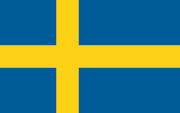 Magnus Norman Magnus Norman |
6–2, 6–3, 2–6, 7–6(6) |
| Winner |
2001 |
French Open (3) |
Clay |
 Àlex Corretja Àlex Corretja |
6–7(3), 7–5, 6–2, 6–0 |
Year-End Championships finals
Singles: 1 (1-0)
| Outcome |
Year |
Championship |
Surface |
Opponent in the final |
Score in the final |
| Winner |
2000 |
Lisbon |
Hard (i) |
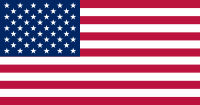 Andre Agassi Andre Agassi |
6–4, 6–4, 6–4 |
Masters Series finals
Singles: 10 (5-5)
| Outcome |
Year |
Championship |
Surface |
Opponent in the final |
Score in the final |
| Runner-up |
1997 |
Canada (Montréal) |
Hard |
 Chris Woodruff Chris Woodruff |
7–5, 4–6, 6–3 |
| Winner |
1999 |
Monte Carlo |
Clay |
 Marcelo Ríos Marcelo Ríos |
6–4, 2–1, retired |
| Winner |
1999 |
Rome |
Clay |
 Patrick Rafter Patrick Rafter |
6–4, 7–5, 7–6(6) |
| Runner-up |
2000 |
Miami |
Hard |
 Pete Sampras Pete Sampras |
6–1, 6–7(2), 7–6(5), 7–6(8) |
| Runner-up |
2000 |
Rome |
Clay |
 Magnus Norman Magnus Norman |
6–3, 4–6, 6–4, 6–4 |
| Winner |
2000 |
Hamburg |
Clay |
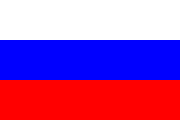 Marat Safin Marat Safin |
6–4, 5–7, 6–4, 5–7, 7–6(3) |
| Winner |
2001 |
Monte Carlo (2) |
Clay |
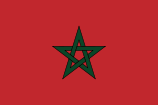 Hicham Arazi Hicham Arazi |
6–3, 6–2, 6–4 |
| Runner-up |
2001 |
Rome (2) |
Clay |
 Juan Carlos Ferrero Juan Carlos Ferrero |
3–6, 6–1, 2–6, 6–4, 6–2 |
| Winner |
2001 |
Cincinnati |
Hard |
 Patrick Rafter Patrick Rafter |
6–1, 6–3 |
| Runner-up |
2003 |
Indian Wells |
Hard |
 Lleyton Hewitt Lleyton Hewitt |
6–1, 6–1 |
Career finals
Singles: 29 (20-9)
- Wins (20)
| Legend |
| Grand Slam (3) |
| Year-End Championships (1) |
| ATP Masters Series (5) |
| ATP International Series Gold (4) |
| ATP Tour (7) |
|
| Titles by Surface |
| Hard (6) |
| Grass (0) |
| Clay (14) |
| Carpet (0) |
|
| No. |
Date |
Tournament |
Surface |
Opponent in the final |
Score in the final |
| 1. |
June 8, 1997 |
French Open, Paris, France |
Clay |
 Sergi Bruguera Sergi Bruguera |
6–3, 6–4, 6–2 |
| 2. |
July 26, 1998 |
Stuttgart, Germany |
Clay |
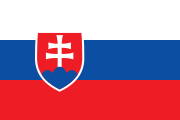 Karol Kučera Karol Kučera |
4–6, 6–2, 6–4 |
| 3. |
October 4, 1998 |
Majorca, Spain |
Clay |
 Carlos Moyà Carlos Moyà |
6–7(5), 6–2, 6–3 |
| 4. |
April 25, 1999 |
Monte Carlo, Monaco |
Clay |
 Marcelo Ríos Marcelo Ríos |
6–4, 2–1, retired |
| 5. |
May 16, 1999 |
Rome, Italy |
Clay |
 Patrick Rafter Patrick Rafter |
6–4, 7–5, 7–6(6) |
| 6. |
March 5, 2000 |
Santiago, Chile |
Clay |
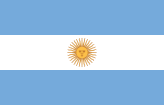 Mariano Puerta Mariano Puerta |
7–6(3), 6–3 |
| 7. |
May 21, 2000 |
Hamburg, Germany |
Clay |
 Marat Safin Marat Safin |
6–4, 5–7, 6–4, 5–7, 7–6(3) |
| 8. |
June 11, 2000 |
French Open, Paris, France |
Clay |
 Magnus Norman Magnus Norman |
6–2, 6–3, 2–6, 7–6(6) |
| 9. |
August 20, 2000 |
Indianapolis, USA |
Hard |
 Marat Safin Marat Safin |
3–6, 7–6(2), 7–6(2) |
| 10. |
December 3, 2000 |
Year-End Championships, Lisbon, Portugal |
Hard (i) |
 Andre Agassi Andre Agassi |
6–4, 6–4, 6–4 |
| 11. |
February 25, 2001 |
Buenos Aires, Argentina |
Clay |
 José Acasuso José Acasuso |
6–1, 6–3 |
| 12. |
March 4, 2001 |
Acapulco, Mexico |
Clay |
 Galo Blanco Galo Blanco |
6–4, 6–2 |
| 13. |
April 22, 2001 |
Monte Carlo, Monaco |
Clay |
 Hicham Arazi Hicham Arazi |
6–3, 6–2, 6–4 |
| 14. |
June 10, 2001 |
French Open, Paris, France |
Clay |
 Àlex Corretja Àlex Corretja |
6–7(3), 7–5, 6–2, 6–0 |
| 15. |
July 22, 2001 |
Stuttgart, Germany |
Clay |
 Guillermo Cañas Guillermo Cañas |
6–3, 6–2, 6–4 |
| 16. |
August 12, 2001 |
Cincinnati, USA |
Hard |
 Patrick Rafter Patrick Rafter |
6–1, 6–3 |
| 17. |
September 15, 2002 |
Costa do Sauípe, Brazil |
Hard |
 Guillermo Coria Guillermo Coria |
6–7(4), 7–5, 7–6(2) |
| 18. |
January 12, 2003 |
Auckland, New Zealand |
Hard |
 Dominik Hrbatý Dominik Hrbatý |
6–3, 7–5 |
| 19. |
October 26, 2003 |
St. Petersburg, Russia |
Hard (i) |
 Sargis Sargsian Sargis Sargsian |
6–4, 6–3 |
| 20. |
February 29, 2004 |
Costa do Sauípe, Brazil |
Clay |
 Agustín Calleri Agustín Calleri |
3–6, 6–2, 6–3 |
- Runner-ups (9)
| Legend |
| Grand Slam (0) |
| Year-end championships (0) |
| ATP Masters Series (5) |
| ATP International Series Gold (1) |
| ATP Tour (3) |
|
| Titles by Surface |
| Hard (4) |
| Grass (0) |
| Clay (4) |
| Carpet (1) |
|
| No. |
Date |
Tournament |
Surface |
Opponent in the final |
Score in the final |
| 1. |
June 15, 1997 |
Bologna, Italy |
Clay |
 Félix Mantilla Félix Mantilla |
4–6, 6–2, 6–1 |
| 2. |
August 3, 1997 |
Montreal, Canada |
Hard |
 Chris Woodruff Chris Woodruff |
7–5, 4–6, 6–3 |
| 3. |
April 2, 2000 |
Miami, USA |
Hard |
 Pete Sampras Pete Sampras |
6–1, 6–7(2), 7–6(5), 7–6(8) |
| 4. |
May 14, 2000 |
Rome, Italy |
Clay |
 Magnus Norman Magnus Norman |
6–3, 4–6, 6–4, 6–4 |
| 5. |
May 13, 2001 |
Rome, Italy |
Clay |
 Juan Carlos Ferrero Juan Carlos Ferrero |
3–6, 6–1, 2–6, 6–4, 6–2 |
| 6. |
August 19, 2001 |
Indianapolis, USA |
Hard |
 Patrick Rafter Patrick Rafter |
4–2, retired |
| 7. |
October 13, 2002 |
Lyon, France |
Carpet |
 Paul-Henri Mathieu Paul-Henri Mathieu |
4–6, 6–3, 6–1 |
| 8. |
March 16, 2003 |
Indian Wells, USA |
Hard |
 Lleyton Hewitt Lleyton Hewitt |
6–1, 6–1 |
| 9. |
February 15, 2004 |
Viña del Mar, Chile |
Clay |
 Fernando González Fernando González |
7–5, 6–4 |
Doubles: 10 (8-2)
- Wins (8)
| Legend |
| Grand Slam (0) |
| Year-end championships (0) |
| ATP Masters Series (0) |
| ATP International Series Gold (2) |
| ATP Tour (6) |
|
| Titles by Surface |
| Hard (1) |
| Grass (0) |
| Clay (7) |
| Carpet (0) |
|
| No. |
Date |
Tournament |
Surface |
Partner |
Opponents in the final |
Score in the final |
| 1. |
November 10, 1996 |
Santiago, Chile |
Clay |
 Fernando Meligeni Fernando Meligeni |
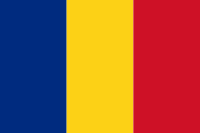 Dinu Pescariu Dinu Pescariu
 Albert Portas Albert Portas |
6–4, 6–2 |
| 2. |
April 13, 1997 |
Estoril, Portugal |
Clay |
 Fernando Meligeni Fernando Meligeni |
 Andrea Gaudenzi Andrea Gaudenzi
 Filippo Messori Filippo Messori |
6–2, 6–2 |
| 3. |
June 15, 1997 |
Bologna, Italy |
Clay |
 Fernando Meligeni Fernando Meligeni |
 Dave Randall Dave Randall
 Jack Waite Jack Waite |
6–2, 7–5 |
| 4. |
July 20, 1997 |
Stuttgart, Germany |
Clay |
 Fernando Meligeni Fernando Meligeni |
 Donald Johnson Donald Johnson
 Francisco Montana Francisco Montana |
6–4, 6–4 |
| 5. |
July 12, 1998 |
Gstaad, Switzerland |
Clay |
 Fernando Meligeni Fernando Meligeni |
 Daniel Orsanic Daniel Orsanic
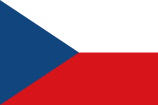 Cyril Suk Cyril Suk |
6–4, 7–5 |
| 6. |
January 10, 1999 |
Adelaide, Australia |
Hard |
 Nicolás Lapentti Nicolás Lapentti |
 Jim Courier Jim Courier
 Patrick Galbraith Patrick Galbraith |
6–4, 6–4 |
| 7. |
March 5, 2000 |
Santiago, Chile |
Clay |
 Antônio Prieto Antônio Prieto |
 Lan Bale Lan Bale
 Piet Norval Piet Norval |
6–2, 6–4 |
| 8. |
March 4, 2001 |
Acapulco, Mexico |
Clay |
 Donald Johnson Donald Johnson |
 David Adams David Adams
 Martín García Martín García |
6–3, 7–6(5) |
- Runner-ups (2)
| Legend |
| Grand Slam (0) |
| Year-end championships (0) |
| ATP Masters Series (1) |
| ATP International Series Gold (0) |
| ATP Tour (1) |
|
| Titles by Surface |
| Hard (1) |
| Grass (0) |
| Clay (0) |
| Carpet (1) |
|
| No. |
Date |
Tournament |
Surface |
Partner |
Opponents in the final |
Score in the final |
| 1. |
September 15, 2002 |
Costa do Sauípe, Brazil |
Hard |
 André Sá André Sá |
 Scott Humphries Scott Humphries
 Mark Merklein Mark Merklein |
6–3, 7–6(1) |
| 2. |
November 3, 2002 |
Paris, France |
Carpet (I) |
 Cédric Pioline Cédric Pioline |
 Nicolas Escudé Nicolas Escudé
 Fabrice Santoro Fabrice Santoro |
6–3, 7–6(6) |
Performance timelines
Singles
| Tournament |
1993 |
1994 |
1995 |
1996 |
1997 |
1998 |
1999 |
2000 |
2001 |
2002 |
2003 |
2004 |
2005 |
2006 |
2007 |
2008 |
Career SR |
Career Win-Loss |
| Grand Slam Tournaments |
| Australian Open |
A |
A |
A |
A |
2R |
2R |
2R |
1R |
2R |
1R |
2R |
3R |
A |
A |
A |
A |
0 / 8 |
7–8 |
| French Open |
A |
A |
A |
1R |
W |
2R |
QF |
W |
W |
4R |
4R |
QF |
1R |
A |
A |
1R |
3 / 11 |
36–8 |
| Wimbledon |
A |
A |
A |
A |
1R |
1R |
QF |
3R |
A |
A |
2R |
A |
A |
A |
A |
A |
0 / 5 |
7–5 |
| U.S. Open |
A |
A |
A |
A |
3R |
2R |
QF |
1R |
QF |
4R |
1R |
1R |
2R |
A |
A |
A |
0 / 9 |
15–9 |
| Grand Slam SR |
0 / 0 |
0 / 0 |
0 / 0 |
0 / 1 |
1 / 4 |
0 / 4 |
0 / 4 |
1 / 4 |
1 / 3 |
0 / 3 |
0 / 4 |
0 / 3 |
0 / 2 |
0 / 0 |
0 / 0 |
0 / 1 |
3 / 33 |
N/A |
| Annual Win-Loss |
0–0 |
0–0 |
0–0 |
0–1 |
10–3 |
3–4 |
13–4 |
9–3 |
12–2 |
6–3 |
5–4 |
6–3 |
1–2 |
0–0 |
0–0 |
0–1 |
N/A |
65–30 |
| Masters Cup |
A |
A |
A |
A |
A |
A |
RR |
W |
RR |
A |
A |
A |
A |
A |
A |
A |
1 / 3 |
5–6 |
| ATP Masters Series |
| Indian Wells |
A |
A |
A |
LQ |
3R |
1R |
SF |
2R |
3R |
A |
F |
2R |
A |
A |
1R |
A |
0 / 8 |
14–8 |
| Miami |
A |
A |
A |
LQ |
3R |
QF |
2R |
F |
3R |
A |
2R |
2R |
A |
A |
1R |
1R |
0 / 9 |
11–9 |
| Monte Carlo |
A |
A |
A |
A |
1R |
3R |
W |
1R |
W |
A |
2R |
1R |
1R |
A |
A |
1R |
2 / 9 |
14–7 |
| Rome |
A |
A |
A |
A |
A |
SF |
W |
F |
F |
2R |
1R |
A |
1R |
A |
A |
A |
1 / 7 |
20–6 |
| Hamburg |
A |
A |
LQ |
A |
1R |
QF |
QF |
W |
1R |
QF |
3R |
A |
2R |
A |
A |
A |
1 / 8 |
16–7 |
| Montreal/Toronto |
A |
A |
A |
A |
F |
1R |
A |
2R |
3R |
1R |
1R |
3R |
A |
A |
A |
A |
0 / 7 |
9–7 |
| Cincinnati |
A |
A |
A |
A |
QF |
A |
QF |
SF |
W |
1R |
1R |
2R |
A |
A |
A |
A |
1 / 7 |
16–6 |
| Madrid (Stuttgart) |
A |
A |
A |
A |
3R |
A |
3R |
3R |
2R |
1R |
2R |
A |
A |
A |
A |
A |
0 / 6 |
3–6 |
| Paris |
A |
A |
A |
A |
2R |
A |
2R |
SF |
3R |
1R |
3R |
A |
A |
A |
A |
A |
0 / 6 |
6–6 |
| Masters Series SR |
0 / 0 |
0 / 0 |
0 / 0 |
0 / 0 |
0 / 8 |
0 / 6 |
2 / 8 |
1 / 9 |
2 / 9 |
0 / 6 |
0 / 9 |
0 / 5 |
0 / 3 |
0 / 0 |
0 / 2 |
0 / 2 |
5 / 67 |
N/A |
| Annual Win-Loss |
0–0 |
0–0 |
0–0 |
0–0 |
12–8 |
10–6 |
21–6 |
25–8 |
23–7 |
4–6 |
10–9 |
3–5 |
1–3 |
0–0 |
0–2 |
0–2 |
N/A |
109–62 |
| Year End Ranking |
670 |
371 |
188 |
88 |
14 |
23 |
5 |
1 |
2 |
37 |
16 |
40 |
291 |
1078 |
680 |
1150 |
N/A |
- A = did not participate in the tournament
- LQ = lost in the qualifying draw
Doubles
| Tournament |
2008 |
2007 |
2006 |
2005 |
2004 |
2003 |
2002 |
2001 |
2000 |
1999 |
1998 |
1997 |
| Australian Open |
- |
- |
- |
- |
- |
- |
- |
1R |
- |
QF |
2R |
1R |
| French Open |
|
- |
- |
- |
- |
- |
- |
- |
- |
2R |
QF |
2R |
| Wimbledon |
|
- |
- |
- |
- |
- |
- |
- |
1R |
1R |
- |
- |
| US Open |
|
1R |
- |
- |
1R |
1R |
- |
- |
- |
- |
- |
1R |
Titles detail
Grand Slam tournaments
| 1. 1997 French Open |
| Round |
Opponent (Rank) |
Score |
| 1R |
 Sláva Doseděl (73) Sláva Doseděl (73) |
6–0, 7–5, 6–1 |
| 2R |
 Jonas Björkman (23) Jonas Björkman (23) |
6–4, 6–2, 4–6, 7–5 |
| 3R |
 Thomas Muster (5) Thomas Muster (5) |
6–7(3), 6–1, 6–3, 3–6, 6–4 |
| 4R |
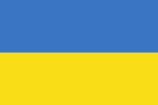 Andrei Medvedev (20) Andrei Medvedev (20) |
5–7, 6–1, 6–2, 1–6, 7–5 |
| QF |
 Yevgeny Kafelnikov (3) Yevgeny Kafelnikov (3) |
6–2, 5–7, 2–6, 6–0, 6–4 |
| SF |
.svg.png) Filip Dewulf (122) Filip Dewulf (122) |
6–1, 3–6, 6–1, 7–6(4) |
| F |
 Sergi Bruguera (19) Sergi Bruguera (19) |
6–3, 6–4, 6–2 |
|
| 2. 2000 French Open |
| Round |
Opponent (Rank) |
Score |
| 1R |
 Andreas Vinciguerra (42) Andreas Vinciguerra (42) |
6–0, 6–0, 6–3 |
| 2R |
 Marcelo Charpentier (230) Marcelo Charpentier (230) |
7–6(5), 6–2, 6–2 |
| 3R |
 Michael Chang (44) Michael Chang (44) |
6–3, 6–7(9), 6–1, 6–4 |
| 4R |
 Nicolás Lapentti (15) Nicolás Lapentti (15) |
6–3, 6–4, 7–6(4) |
| QF |
 Yevgeny Kafelnikov (4) Yevgeny Kafelnikov (4) |
6–3, 3–6, 4–6, 6–4, 6–2 |
| SF |
 Juan Carlos Ferrero (11) Juan Carlos Ferrero (11) |
7–5, 4–6, 2–6, 6–4, 6–3 |
| F |
 Magnus Norman (2) Magnus Norman (2) |
6–2, 6–3, 2–6, 7–6(6) |
|
| 3. 2001 French Open |
| Round |
Opponent (Rank) |
Score |
| 1R |
 Guillermo Coria (13) Guillermo Coria (13) |
6–1, 7–5, 6–4 |
| 2R |
 Agustín Calleri (88) Agustín Calleri (88) |
6–4, 6–4, 6–4 |
| 3R |
 Karim Alami (117) Karim Alami (117) |
6–3, 6–7(3), 7–6(5), 6–2 |
| 4R |
 Michael Russell (136) Michael Russell (136) |
3–6, 4–6, 7–6(3), 6–3, 6–1 |
| QF |
 Yevgeny Kafelnikov (8) Yevgeny Kafelnikov (8) |
6–1, 3–6, 7–6(3), 6–4 |
| SF |
 Juan Carlos Ferrero (2) Juan Carlos Ferrero (2) |
6–4, 6–4, 6–3 |
| F |
 Àlex Corretja (32) Àlex Corretja (32) |
6–7(3), 7–5, 6–2, 6–0 |
|
Notes:
- 1997: Defeated 3 champions, who had won the previous 4 editions, en route to title: Bruguera (1993–94), Muster (1995) and Kafelnikov (1996).
- 2000: As in 1997, faced Kafelnikov in the quarterfinal match; second final of the year against Norman ("a historical rivalry", in Kuerten's words).
- 2001: For the third time faced Kafelnikov in the quartefinal match; for the second time, faced Ferrero in the semifinal match. Saved a match point against Russell in the 4th round.
Tennis Masters Cup tournaments
2000 Tennis Masters Cup (Lisbon)
After losing his first Round Robin match, Kuerten had to win the tournament in order to finish the year as world n.1 (had he won the first match, a semifinal result would have sufficed).
Masters Series tournaments
|
1999 Monte Carlo Masters
| Round |
Opponent (Rank) |
Score |
| 1R |
 Marcio Carlsson (131) Marcio Carlsson (131) |
6–1, 6–3 |
| 2R |
 Bohdan Ulihrach (34) Bohdan Ulihrach (34) |
6–7(5), 6–2, 6–4 |
| 3R |
 Fernando Meligeni (51) Fernando Meligeni (51) |
6–2, 7–6(2) |
| QF |
 Vincent Spadea (33) Vincent Spadea (33) |
6–3, 6–3 |
| SF |
 Félix Mantilla (17) Félix Mantilla (17) |
3–6, 6–3, 6–4 |
| F |
 Marcelo Ríos (13) Marcelo Ríos (13) |
6–4, 2–1, retired |
|
1999 Rome Masters
| Round |
Opponent (Rank) |
Score |
| 1R |
 Fernando Vicente (54) Fernando Vicente (54) |
6–4, 6–3 |
| 2R |
 Francisco Clavet (21) Francisco Clavet (21) |
6–3, 6–3 |
| 3R |
 Yevgeny Kafelnikov (1) Yevgeny Kafelnikov (1) |
7–5, 6–1 |
| QF |
 Karol Kučera (12) Karol Kučera (12) |
3–6, 6–4, 7–5 |
| SF |
 Àlex Corretja (7) Àlex Corretja (7) |
6–4, 6–2 |
| F |
 Patrick Rafter (4) Patrick Rafter (4) |
6–4, 7–5, 7–6(6) |
|
2000 Hamburg Masters
| Round |
Opponent (Rank) |
Score |
| 1R |
 Karim Alami (28) Karim Alami (28) |
5–7, 6–2, 6–3 |
| 2R |
 Sébastien Grosjean (30) Sébastien Grosjean (30) |
6–1, 3–6, 6–3 |
| 3R |
 Wayne Ferreira (25) Wayne Ferreira (25) |
6–1, 6–2 |
| QF |
 Magnus Norman (4) Magnus Norman (4) |
6–4, 6–2 |
| SF |
 Andrei Pavel (67) Andrei Pavel (67) |
6–3, 6–3 |
| F |
 Marat Safin (18) Marat Safin (18) |
6–4, 5–7, 6–4, 5–7, 7–6(3) |
|
|
2001 Monte Carlo Masters
| Round |
Opponent (Rank) |
Score |
| 1R |
 Younes El Aynaoui (72) Younes El Aynaoui (72) |
6–4, 4–6, 6–4 |
| 2R |
 Fernando Vicente (26) Fernando Vicente (26) |
6–2, 6–2 |
| 3R |
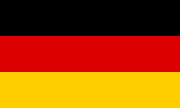 Tommy Haas (18) Tommy Haas (18) |
6–7(6), 6–3, 6–3 |
| QF |
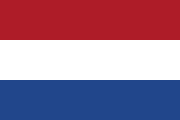 Sjeng Schalken (82) Sjeng Schalken (82) |
6–7(1), 6–2, 6–4 |
| SF |
 Guillermo Coria (28) Guillermo Coria (28) |
6–4, 6–2 |
| F |
 Hicham Arazi (77) Hicham Arazi (77) |
6–3, 6–2, 6–4 |
|
2001 Cincinnati Masters *
| Round |
Opponent (Rank) |
Score |
| 1R |
 Andy Roddick (24) Andy Roddick (24) |
7–6(3), 6–1 |
| 2R |
 Tommy Haas (22) Tommy Haas (22) |
7–6(4), 7–6(8) |
| 3R |
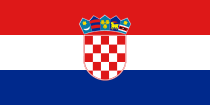 Goran Ivanišević (11) Goran Ivanišević (11) |
6–2, 6–1 |
| QF |
 Yevgeny Kafelnikov (10) Yevgeny Kafelnikov (10) |
6–4, 3–6, 6–4 |
| SF |
 Tim Henman (8) Tim Henman (8) |
6–2, 1–6, 7–6(4) |
| F |
 Patrick Rafter (4) Patrick Rafter (4) |
6–1, 6–3 |
|
- * Kuerten later described this as his best-played tournament, given how many difficult opponents he had to defeat en route to the title. One statistic supports this position: The average ranking of his opponents was 13.16 which was the best of any of his Grand Slam or Masters Series title wins. It's also the best for any Cincinnati champion since the ATP world rankings began in 1973. (The second- and third-best average opponent rankings in Cincinnati were Andre Agassi's 18.16 in 2004, and Patrick Rafter's 18.80 in 1998, although in 1998, Rafter only had to play 5 matches.)
ATP Tour career earnings
| Year |
Majors |
ATP wins |
Total wins |
Earnings ($) |
Money list rank |
| 1997 |
1 |
0 |
1 |
1,586,753 |
7 |
| 1998 |
0 |
2 |
2 |
732,804 |
25 |
| 1999 |
0 |
2 |
2 |
1,762,269 |
6 |
| 2000 |
1 |
4 |
5 |
4,701,610 |
1 |
| 2001 |
1 |
5 |
6 |
4,091,004 |
2 |
| 2002 |
0 |
1 |
1 |
441,974 |
43 |
| 2003 |
0 |
2 |
2 |
768,447 |
21 |
| 2004 |
0 |
1 |
1 |
385,208 |
62 |
| 2005 |
0 |
0 |
0 |
89,389 |
188 |
| 2006 |
0 |
0 |
0 |
7,525 |
681 |
| 2007* |
0 |
0 |
0 |
23,660 |
175 |
| Career |
3 |
17 |
20 |
14,755,588 |
11 |
- * As of March 5, 2007.
Davis Cup
Keurten's Davis Cup record [5]
|
Total |
Surface |
Indoor/Outdoor |
| Clay |
Carpet |
Grass |
Hard |
Indoor |
Outdoor |
| Won |
34 |
28 |
6 |
– |
– |
8 |
26 |
| Lost |
15 |
8 |
5 |
2 |
– |
5 |
10 |
Kuerten was first called to play for Brazil in the Davis Cup in 1996, when he became the second-best ranked player in the country (to Fernando Meligeni). Since then, Kuerten has always answered the invitations to play, claiming that it was a unique opportunity to represent his country.
In the 1999 and 2000 seasons, Kuerten took criticism from his fans, who accused him of not giving 100% in the Davis Cup matches. They claimed he was more concerned with sparing his energy for the ATP tournaments. At one point, Kuerten interrupted a match to argue with a fan who had shouted out for him to apply himself to the match at hand.
In 2004, following the country's unexpected defeat to Canada in the Repechage match, and the country's demotion to the American Group I after having been defeated by Sweden in that year's First Round, discontent with the politics of the Brazilian Tennis Confederation spilled over. Kuerten refused to play for Brazil in the American Group I. The unexpected firing of then captain of the Brazilian team, Ricardo Accioly, was the trigger. Kuerten thought it was an arbitrary decision, since it was made without consulting the players. In his view that was just the last in a sequence of questionable decisions made by organization's board.
All other professional Brazilian players followed Kuerten's lead, as well as the newly-appointed captain, former player Jaime Oncins. As a result, Brazil had to play the first round in the Zonal Group with a team made up of junior players (which was only possible after much negotiation, during which time the country was at risk of forfeiting the Round, which would have resulted in automatic demoting to the American Group II), which resulted in a defeat and the possibility of demotion to the American Group II.
The protest continued, and as a result, Brazil had to play the Repechage match again with a junior team, and was demoted to the American Group II for the 2005 season. As of 2005, following the fall of the BTC board in the aftermath of the protest, Kuerten and the other players have decided to return to the team, now captained by former player Fernando Meligeni. Kuerten, however, had to delay his return beyond the end of the players' strike, since his hip injuries kept him off courts between September 2004 and May 2005. He returned in the Tie with the Netherland Antilles, valid for the Second Round of the American Zonal Group II, which was played in Santa Catarina, Brazil (on clay) between July 15 and July 17, 2005.
Davis Cup results
1996
| American Group I |
| Round |
Date |
Opponents |
Venue |
Surface |
Match |
Opponent |
Score |
| QF |
9–11 February 1996 |
 Chile Chile |
Santiago |
Clay |
Doubles (with Jaime Oncins) |
Rebolledo/Ríos |
7–5, 6–3, 4–6, 6–2 |
| SF |
5–7 April 1996 |
 Venezuela Venezuela |
Santos |
Clay |
Singles 2 |
Nicolas Pereira |
6–2, 6–7(2), 6–1, 6–2 |
| Singles 4 |
Jimy Szymanski |
6–2, 6–7(6), 6–0 |
| World Group |
| Round |
Date |
Opponents |
Venue |
Surface |
Match |
Opponent |
Score |
| QR |
20–22 September 1996 |
 Austria Austria |
São Paulo |
Hard |
Singles 2 |
Markus Hipfl |
4–6, 3–6, 7–6(0), 7–6(5), 6–1 |
| Doubles (with Jaime Oncins) |
Muster/Plamberger |
7–6(2), 4–6, 6–3, 3–6, 2–0 def.* |
QF – Quarterfinal | SF – Semifinal | QR – Qualifying Round
* During the Doubles match, the star of the Austrian team, Thomas Muster, got angry over what he claimed to be disrespectful Brazilian fans, who were allegedly insulting him from the stands. The match umpire did not recognize his claim, so Muster walked off the court, throwing the match. He then convinced the entire Austrian team to defect the confront, which led to the cancellation of the two singles matches on Sunday and the automatic demotion of Austria to the European Zonal Group I.
References
3. http://sports.espn.go.com/sports/tennis/french08/columns/story?id=3411935&lpos=spotlight&lid=tab2pos1
Further reading
- Gustavo Kuerten e Roland Garros: uma História de Amor. Instituto Takano. 2002. ISBN 85-902671-1-3.
- Tênis no Brasil: de Maria Esther Bueno a Gustavo Kuerten, O. Codex. 2004. ISBN 85-7594-031-7.
External links
|
Gustavo Kuerten (Achievement precedessor & successor) |
|
| Sporting positions |
Preceded by
Marat Safin
Marat Safin
Marat Safin |
World No. 1
December 4, 2000 – January 28, 2001 (8 weeks)
February 26, 2001 – April 1, 2001 (5 weeks)
April 23, 2001 – November 18, 2001 (30 weeks) |
Succeeded by
Marat Safin
Marat Safin
Lleyton Hewitt |
| Awards and achievements |
Preceded by
Andre Agassi |
ITF World Champion
2000 |
Succeeded by
Lleyton Hewitt |
Preceded by
Andre Agassi |
ATP Player of the Year
2000 |
Succeeded by
Lleyton Hewitt |
Preceded by
Aisam-Ul-Haq Qureshi & Amir Hadad |
ATP Arthur Ashe Humanitarian of the Year
2003 |
Succeeded by
Andy Roddick |
|
|
|
Association of Tennis Professionals (ATP) World No. 1 players |
|
|
|
|
| ATP rankings incepted on August 23, 1973 · (year first held/year last held - number of weeks (w)) · current No. 1 in bold, as of September 13, 2010 |
|
|
French Open boys' doubles champions |
|
1981 Barry Moir / Michael Robertson • 1982 Pat Cash / John Frawley • 1983 Mark Kratzmann / Simon Youl • 1984 Luke Jensen / Patrick McEnroe • 1985 Petr Korda / Cyril Suk • 1986 Franco Davín / Guillermo Pérez-Roldán • 1987 Jim Courier / Jonathan Stark • 1988 Jason Stoltenberg / Todd Woodbridge • 1989 Johan Anderson / Todd Woodbridge • 1990 Sébastien Lareau / Sébastien Leblanc • 1991 Thomas Enqvist / Magnus Martinelle • 1992 Enrique Abaroa / Grant Doyle • 1993 Steven Downs / James Greenhalgh • 1994 Gustavo Kuerten / Nicolás Lapentti • 1995 Raemon Sluiter / Peter Wessels • 1996 Sébastien Grosjean / Olivier Mutis • 1997 José de Armas / Luis Horna • 1998 José de Armas / Fernando González • 1999 Irakli Labadze / Lovro Zovko • 2000 Marc López / Tommy Robredo • 2001 Alejandro Falla / Carlos Salamanca • 2002 Markus Bayer / Philipp Petzschner • 2003 Dudi Sela / Georgy Balazs • 2004 Pablo Andújar / Marcel Granollers • 2005 Emiliano Massa / Leonardo Mayer • 2006 Emiliano Massa / Kei Nishikori • 2007 Andrei Karatchenia / Thomas Fabbiano • 2008 Henri Kontinen / Christopher Rungkat • 2009 Marin Draganja / Dino Marcan • 2010 Duilio Beretta / Roberto Quiroz
|
|
|
French Open men's singles champions |
|
|
|
|
